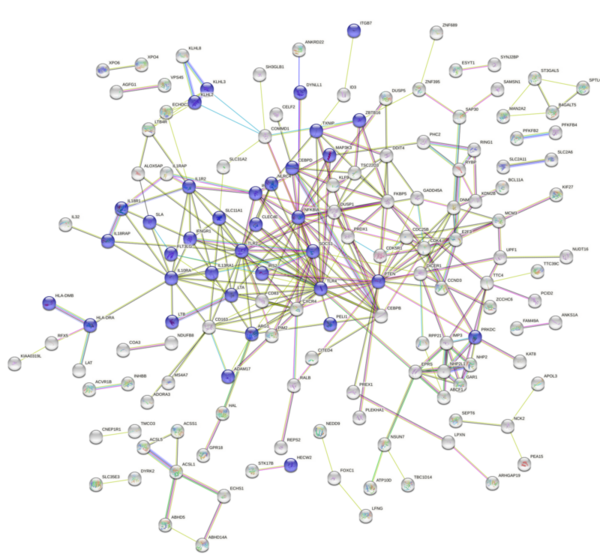Aberrant response to dexamethasone suppression test associated with inflammatory response in MDD patients
(1) Saline High School, (2) Michigan State University School of Nursing
https://doi.org/10.59720/22-121
Major depressive disorder (MDD) is a prevalent mood disorder. The direct causes and biological mechanisms of depression still elude understanding, though genetic factors have been implicated. This study looked to identify the mechanism behind the aberrant response to the dexamethasone suppression test (DST) displayed by MDD patients, in which they display a lack of cortisol suppression. Understanding the reason behind the response may offer insight into the mechanisms behind MDD and even potentially offer a pathway to new diagnostic or treatment solutions. We analyzed previously generated microarray gene expression profiling data from whole blood samples to obtain a view of the genes affected by the DST and the aberrant response. We used GEO2R to run analyses. We also used STRING-db and Genecards to further explore these genes. Analysis revealed several pro-inflammatory genes that were significant and differentially expressed between affected and non-affected groups in response to the DST. The presence of a steroid should cause a decrease in the expression of inflammatory genes, but in this study, we saw a pro-inflammatory response after steroid administration in diagnosed MDD subjects, while decreased expression of inflammatory genes was seen in subjects unaffected by depression. Inflammation can cause cellular injury and can activate other inflammatory pathways, and may be a driving factor behind MDD as a result. Thus, looking at ways to decrease the inflammatory response could have implications for treatment and may explain why some people treated for depression still display symptoms or may lead researchers to different classes of drugs for treatment.
This article has been tagged with: